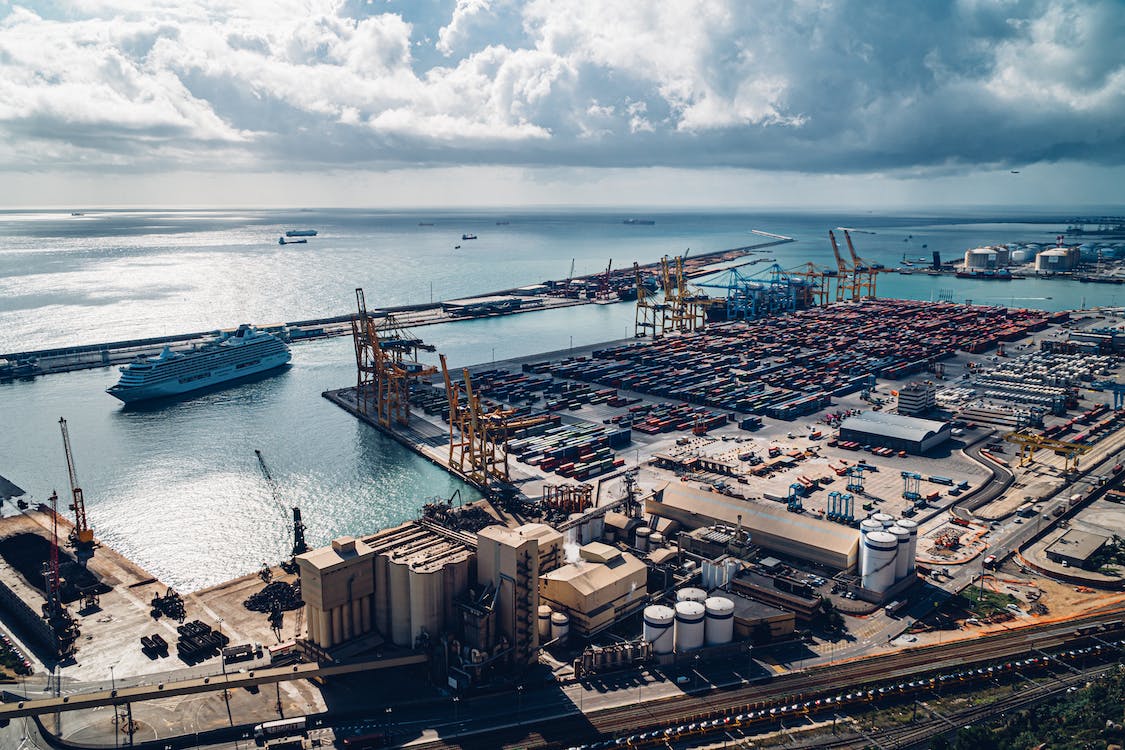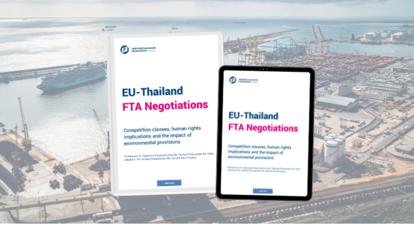Trade
EU-Thailand FTA Negotiations: Competition clauses, human rights implications and the impact of environmental provisions

© Pexel | Photo by James Heming
On March 15th, aiming to boost trade and investment, the EU and Thailand announced the relaunch of negotiations for a Free Trade Agreement (FTA).
This is the second attempt to reach an EU-Thailand Free Trade Agreement. Negotiations were first launched in 2013. But one year later, when Thailand´s military crushed democracy and took over in a coup, Brussels pulled out of the FTA-Negotiations. Now, following an election in Thailand in 2019 and with another election scheduled for May 14th, the EU is back at the table. Thailand is the EU's 4th most important trading partner in the region. In 2020, trade in goods was worth €42 billion annually, trade in services €8 billion. "I warmly welcome the relaunch of our negotiations for a trade deal with Thailand - the second largest economy in the ASEAN region.
A modern and dynamic FTA would lead to benefits for both sides. It will boost the scale and sustainability of our trade, drive innovation and strengthen our supply chains ", said EU Trade Commissioner Valdis Dombrovskis. Thailand´s Commerce Minister Jurin Laksanawisit was equally upbeat: "Investments will be exchanged between the two sides, whereby Thailand will receive technology and innovation transfers that will play an important role in attracting investors from around the world to invest in Thailand," Jurin´s Ministry said in a statement. Thailand hopes to be able to import machinery and chemicals from the EU at lower cost and to eliminate tariffs on exports to the EU, most importantly on cars and their parts, electronics, garments, textiles, food and rubber. The EU is Thailand´s 4th largest trade partner and its 3rd largest investor.
Central role of Human Rights in shaping competition policy
The EU and Thailand, who signed a Partnership and Cooperation Agreement in 2022, hope to conclude their FTA negotiations by 2025. That seems optimistic. EU-Indonesia negotiations started in 2016 and are still ongoing. In Southeast Asia, the EU already has FTAs with Singapore and Vietnam. It took several years to get them done. The EU-Vietnam FTA is recent and could, to some extend, serve as a blueprint for the EU-Thailand agreement. According to the EU, issues such as market access for goods, services, investment and government procurement will be negotiated with Thailand, and also the protection of intellectual property rights including Geographical Indications as well as the removal of obstacles to digital trade and trade in energy and raw materials. "Sustainability will also be at the heart of this agreement, with robust and enforceable disciplines on Trade and Sustainable Development, supporting high levels of protection for workers' rights, for the environment, and the achievement of ambitious climate goal", the EU said in a statement.
"The resumption of trade negotiations between Thailand and the EU offers an opportunity to capitalize on their trade potential and deepen economic ties. As trade negotiations become more complex, issues like the environment, human rights and competition have implications on the Thailand-EU FTA", writes Dr. Pacharasut Sujarittanonta of VA Partners, a Bangkok-based laws and economic consulting firm. Commissioned by the Friedrich-Naumann-Foundation for Freedom, VA Partners examined core topics of the future EU-Thailand FTA and drafted recommendations for negotiators to promote sustainable and responsible trade relationships. One focus of the in-depth research paper - "EU-Thailand FTA Negotiations: Competition clauses, human rights implications and the impact of environmental provisions" - is on competition clauses. The research examines the impacts of competition on human rights across 151 countries.
Competition and economic growth: a complex and non-linear relationship
"Competition clauses in Free Trade Agreements (FTAs) have become more prevalent as countries recognize the interaction between trade and competition policies", VA Partners assess. "The first generation of FTAs focused on trade-related issues, while recent FTAs have included non-traditional provisions related to social issues, environment, labour, data protection, and anti-corruption. The impact of competition-related provisions varies across countries and industries, and can benefit less developed countries by promoting fair practices and providing a mechanism for international cooperation. However, the relationship between competition and economic growth is complex and non-linear, with potential risks for less-advanced economies or negative consequences for social values, such as human rights. As a result, a broader understanding of competition is needed, with human rights playing a central role in shaping competition policy."
Environmental chapter should avoid trade barriers
VA Partners´ study also deals with the impact of environmental provisions in trade agreements and implications for the EU-Thai FTA going forward. The research suggests that the competition chapter of the future EU-Thai FTA should emphasize human rights and comprehensive accountability, while the environmental chapter should be meaningful to avoid unnecessary trade barriers. "As Thailand and the EU move forward with their FTA negotiations, it is crucial to consider how competition-related provisions may influence human rights, both substantively and procedurally. By understanding these linkages, negotiators can work towards utilizing the competition chapter in the FTA to achieve a broader set of objectives, including the promotion of human rights."
*Moritz Kleine-Brockhoff is the Head of the Regional Office Southeast and East Asia of the Friederich-Naumann-Foundation for Freedom in Bangkok.
Please download VA Partners´ research paper here. "EU-Thailand FTA Negotiations: Competition clauses, human rights implications and the impact of environmental provisions" -

